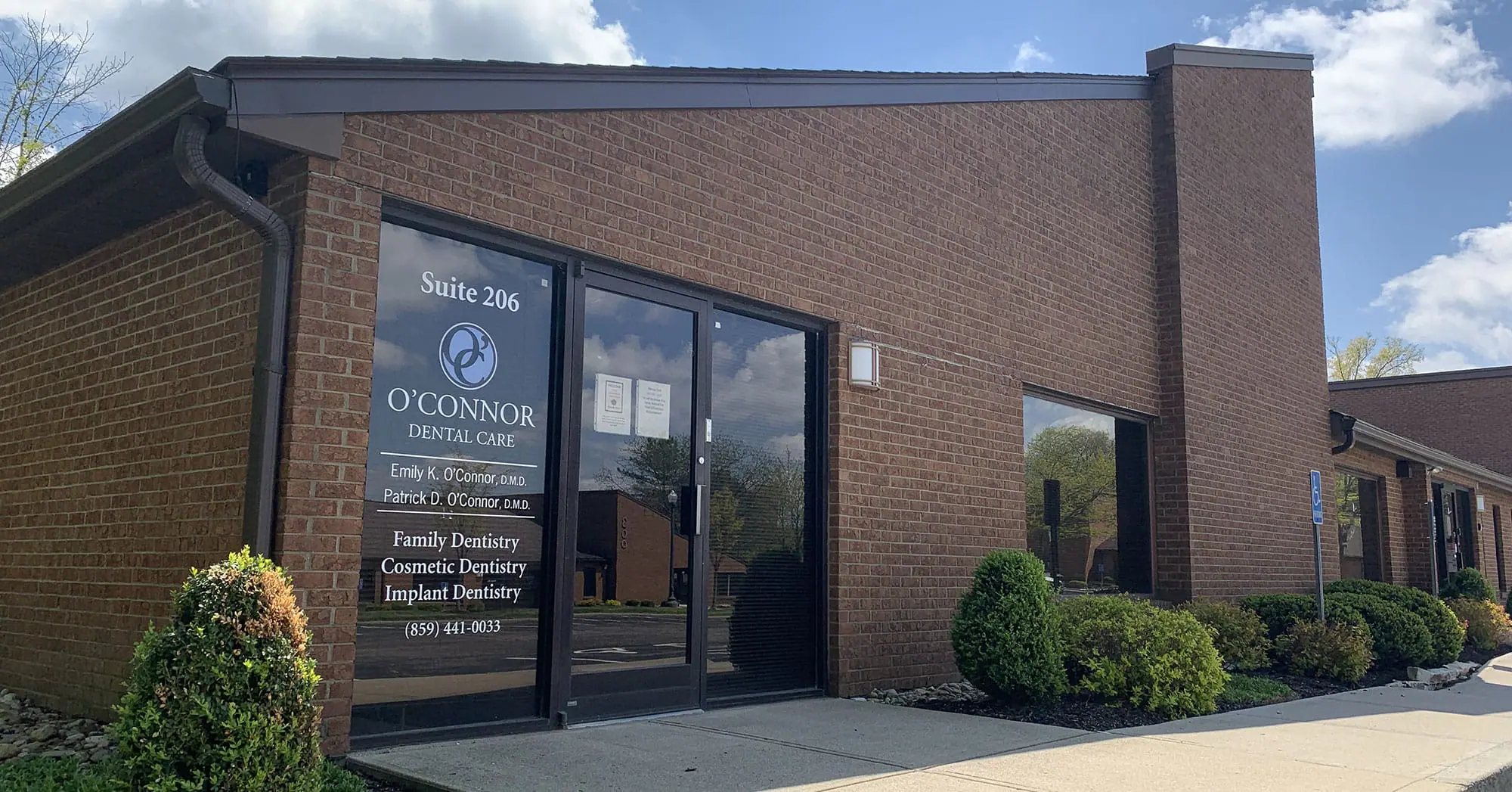What is preventive dentistry and why is it important?
Preventive dentistry is just what it sounds like: dental care that prevents dental problems from developing in your mouth. At O’Connor Dental Care, we provide top-quality preventive dental care to keep your smile healthier longer.
What is the purpose of X-rays?
We use X-rays to get a full, detailed picture of what’s going on in your mouth above and below the gum line, including the condition of each tooth, as well as the underlying bone, the connective tissue that attaches the teeth to the bone, and the relationship of teeth to one another. X-rays help us to make smart treatment decisions based on an accurate picture of your mouth beyond what the naked eye can see.
Why are professional cleanings necessary?
Over time, dental plaque can build up on your teeth as a result of chewing food. Dental plaque is a sticky, colorless biofilm, or buildup of bacteria, that develops and grows on the surfaces of your teeth and gums, particularly at the gum line. Over time, dental plaque develops into tartar, which may appear pale yellow or brown. A buildup of tartar can cause problems with oral health, such as tooth decay and gum disease.
Getting your teeth cleaned professionally removes plaque and tartar deposits from your teeth. This is why professional dental cleanings are so important, since removing plaque and tartar from tooth surfaces is essential to oral health, and protects your teeth and gums from potential tooth decay or gum disease.
How often should I get a checkup?
Typically, we recommend dental checkups twice per year. Depending on the health and condition of your mouth, our doctors may recommend regular cleanings and checkups as infrequently as once a year, or as frequently as three times yearly, and even more in extreme cases. If you have chronic problems with your teeth and gums, it’s likely that more frequent dental visits will be recommended for you.
What is fluoride and why is it important to dental health?
Fluoride is a mineral that strengthens the teeth and protects tooth enamel from wearing down as a result of exposure to acid in food and drinks, such as soft drinks, wine, and coffee. Fluoride is especially important to children’s developing teeth, as it helps to protect delicate tooth enamel even before new teeth break through the gums.
How can I prevent cavities and tooth decay?
Brushing and flossing regularly, in addition to regular dental checkups, are the best-known habits to prevent the need for expensive dental work down the road. Fluoride and Sealants are also effective at preventing cavities and tooth decay, particularly in young children and teens.
How often should I brush my teeth?
Per ADA recommendations, you should brush your teeth at least twice daily. Many people prefer to brush after meals, while some prefer to brush before bedtime.
How often should I floss?
The ADA recommends flossing or using another interdental cleaner to clean between your teeth at least once daily. You may choose to floss in the evening prior to bedtime so that you go to sleep with a clean mouth. Others prefer to floss after their midday meal.
Can I get a dental checkup during pregnancy?
Continuing with your routine dental checkups during pregnancy is not only safe; it is extremely important for your oral and overall health. This is because pregnancy has been known to trigger dental conditions that you’ll want to stay abreast of to prevent them from becoming bigger problems down the road. Many mothers-to-be experience dental problems during pregnancy, as a consequence of mineral deficiencies that may develop as your body is using your supply of minerals to help your baby grow.
In addition to taking a good prenatal vitamin and mineral supplement, as recommended by your OB-GYN practitioner, keeping up with regular dental cleanings and essential preventive procedures such as getting cavities filled will help keep you and your baby healthy as you prepare for delivery. Also, it will be much easier to knock these essential self-care items off your to-do list before your baby arrives.
Are antibiotics necessary before a dental appointment?
The American Hospital Association (AHA) recommends that persons with certain heart conditions, including murmurs, take a short course of antibiotics as a preventive measure prior to certain dental procedures, as these individuals may be at risk for developing an infection affecting the heart. Please call us if you have any questions surrounding your upcoming procedure and your specific medical needs.
Do I still have to see my dentist if I have dentures?
Absolutely. Your oral health still needs to be monitored. Your dentist can also help you extend the life of your dental prostheses by keeping them properly fitted, which helps to prevent infection and other irritation and keeps your dentures comfortable and functional. As your bone structure and gums change over time, your denture or partial denture may need to be adjusted or replaced.





